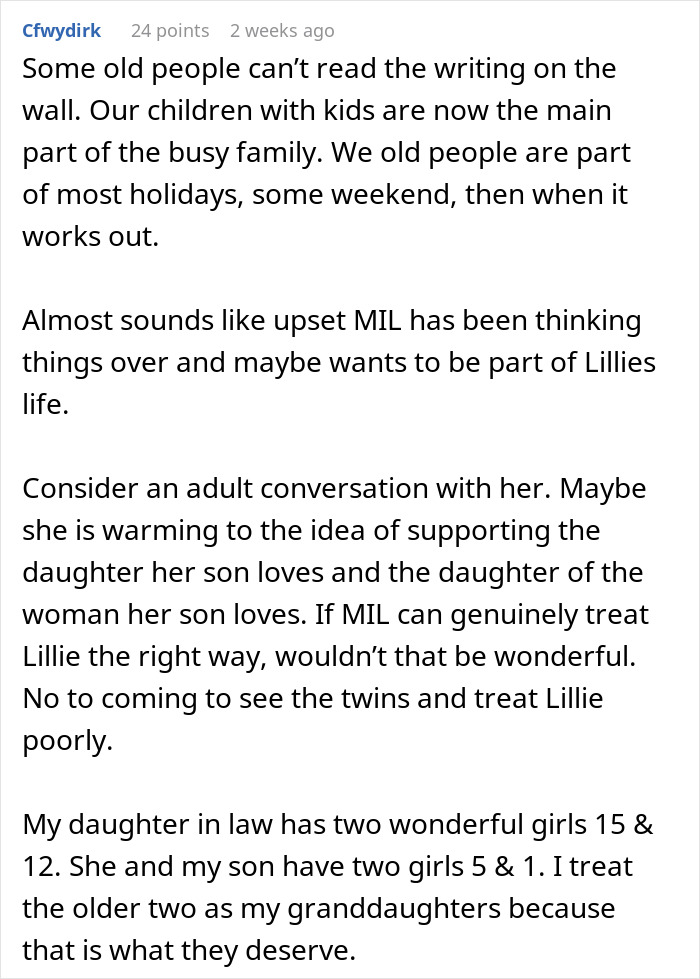Families come in all shapes and sizes. Although that can be a beautiful thing, it often also comes with lots of complexities. For example, some grandparents might have difficulty accepting children from previous partnerships as their own grandchildren. And because mothers have the instinct to protect their children, the relationship between an MIL and a DIL might become strained.
Redditor Fancy-Atmosphere-221 ended up in a similar situation. She shared a story on r/pettyrevenge about how she got back at her mother-in-law for treating her eldest daughter as a second-class grandchild. Read on to find out the whole story and how the Internet reacted to OP’s petty revenge.
Not all grandparents love their grandchildren equally

Image credits: Anna Shvets (not the actual photo)
This woman decided to take revenge on her MIL for not treating her eldest daughter like her other children
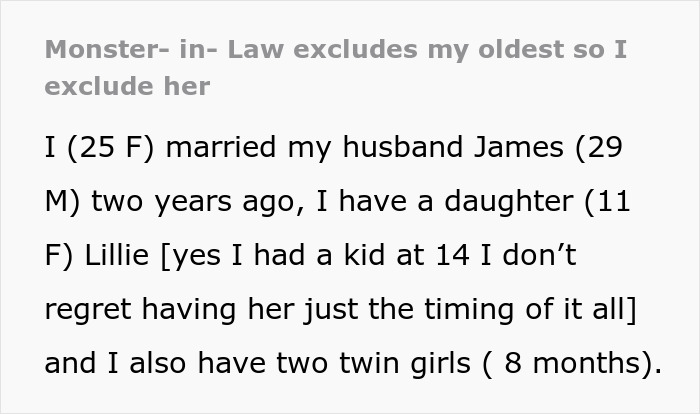



Image credits: Andrea Piacquadio (not the actual photo)
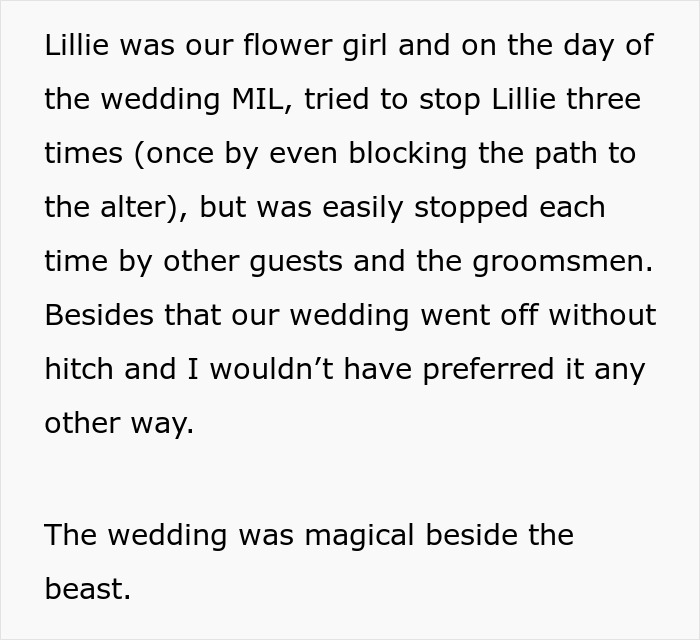

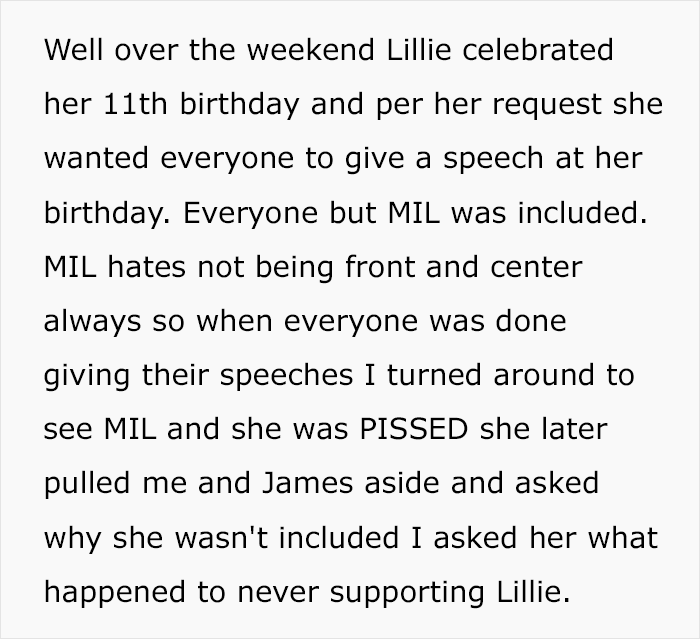

Image credits: Maryia Plashchynskaya (not the actual photo)
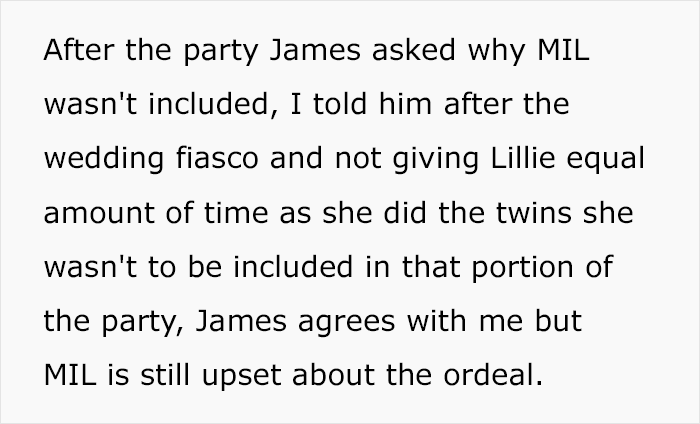
Image credits: Fancy-Atmosphere-221
What can be the repercussions of such favoritism for the child?
Favoritism from grandparents can manifest in a lot of different ways. It can be extra gifts and attention. Other grandparents, like the one in this story, can flat-out tell the parents which grandchildren they don’t like and have no interest in supporting.
Clinical psychologist Karen Nimmo writes about the repercussions of favoritism for a child. She claims the result of grandparent favoritism is not as pronounced as it would be if it came from the parents. But the child still might experience resentment and jealousy.
“Kids who feel invisible can be anxious, angry, lonely, have behavioral problems and low self-esteem. As adults, they can be needy in relationships, excessively seeking approval and love,” Nimmo explains.
Research also suggests that picking a favorite child can cause a rift between the children when they grow up. Apparently, it’s the main problem that affects siblings’ relationships when they leave the nest.
Other researchers have also found that favoritism carries through generations. If their parents ignored them or picked favorites, the grandparents might think that such behavior in a family is normal. They then pass it on to their children and grandchildren.

Image credits: Andrea Piacquadio (not the actual photo)
The situation can become even more difficult when it’s a blended family
The term ‘blended family’ (sometimes also called stepfamily) refers to families where parents have one or more children from a previous relationship. In this particular story, the grandmother’s real problem seems to stem from the fact that the girl is not her blood relative.
Robert Busha writes for Focus On The Family that the adults should try understanding the children. “The more you are aware of what your step-grandchildren are dealing with in their new life, the more understanding and resourceful you can be to help them get through it.”
It is also normal for the step-grandparents to acknowledge their feelings. It’s natural to feel a little upset if your son gets married to someone who already has a child. NDSU academics write: “Grandparents might question how they fit in or what role they play in families where they are not biologically related to the children or where children have an existing relationship with their biological grandparents.”
However, that is not an excuse to treat a kid badly. Most experts agree that favoritism is a big no-no in blended families and recommend avoiding favoritism. They advise to be aware of the children’s feelings and encourage them to call grandparents “grandpa” or “grandma.”
Robert Busha also suggests coming up with a different nickname for step-grandparents. If the children don’t feel comfortable saying “grandma” to their non-blood relatives, don’t push them. Busha gives his personal example: he is Bobby and his wife is Mamie to their step-grandchildren.
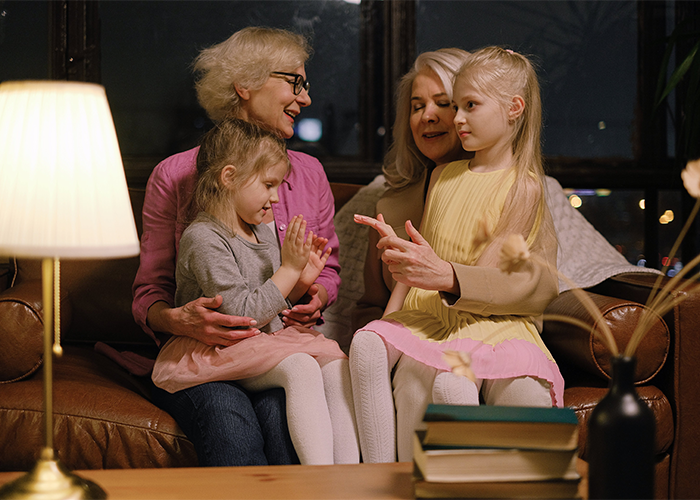
Image credits: Anna Shvets (not the actual photo)
How should parents act when a grandparent ignores one of their children?
Parenting journalist Malia Jacobson advises parents not to express their frustrations with a grandparent in front of their kids. It’s possible that the child is not even aware of the unequal treatment, so starting a conversation when they are present might only make things worse.
Instead, try working things out with the grandparent. If they’re willing to listen, the problem might start getting better. But if the grandparent acts like the mother-in-law in this story, talking won’t do much.
Karen Nimmo then suggests setting firm boundaries. “Don’t expose your children to too much of a difficult grandparent – or anyone who treats them badly, for that matter,” she writes. “Setting boundaries helps you to take back some control of the relationship too.”
Try shifting your focus from this family member to others. Maybe some aunts and uncles are willing to spend time with the kid. While it’s important that the child gets used to the sense of having a family, doing that with people who exclude them from things is not the best option.
Lastly, Nimmo invites parents to remember that even if the grandparent-grandchild relationship is important, it’s not the end-all of family relationships. The biggest support for a child should come from their parents, so focus on that. “You’re not your mum or your dad. You’re you – so you parent differently – and you can trust that to make all the difference,” Nimmo writes.

Image credits: Oană Andrei (not the actual photo)
Commenters had a lot of questions about the situation


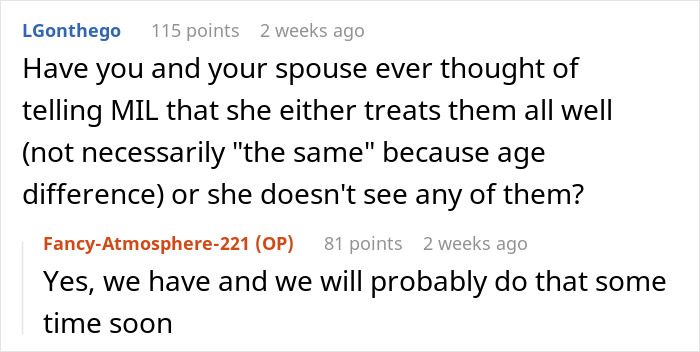
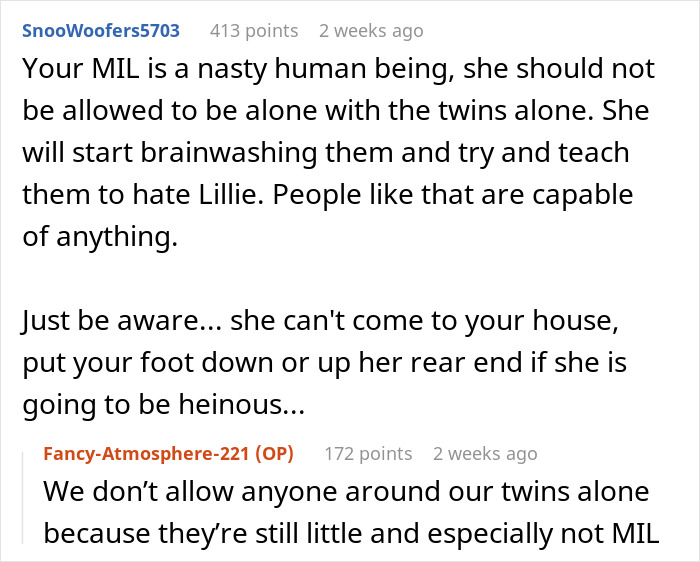
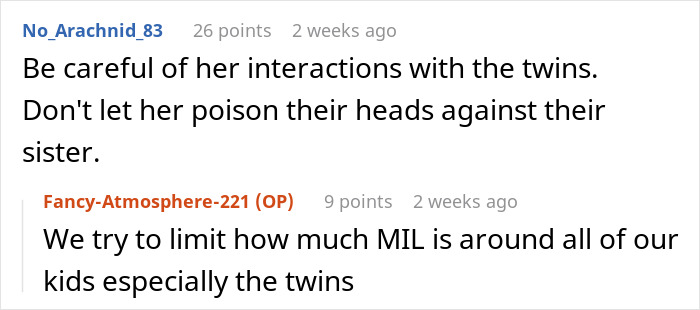
People were almost unanimous in criticizing the MIL. Others thought the OP shared in some of the blame, too









